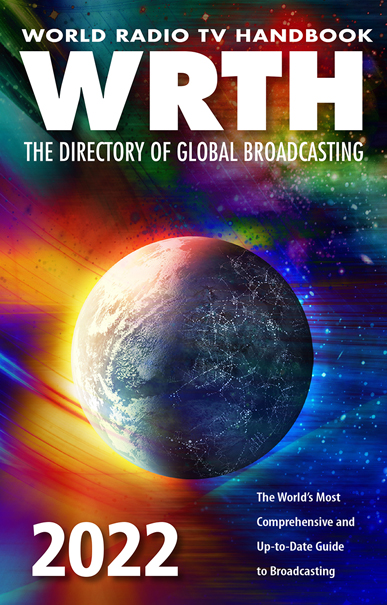The WRTH was hard to find when I used to live in Saskatchewan, as most of the bookstores didn't carry it, but I still managed to find a copy once a year. My purchase of an R75 was the result of reading a review of it in the WRTH. I seem to recall that it was published back then by Billboard Publications, but I guess it became its own publisher at some point.
We have to face facts, after all: Printed matter in general is rapidly losing ground to web publications and eBooks, the source, in fact, of most of my own reading material. When I started using the internet back in 1994 the access was through the Vancouver Public Library. One of the more skeptical librarians told me that the internet would never replace printed books. I'm now living in a smaller city, where the public library and the city's museum share the same building. The sign outside reads "Library Museum"; how fitting!
Our local bookstore, which seems to have been absorbed by one company after another over the years, has a huge display of printed books, but judging by what I've seen on passing by, few customers to purchase them. It's amazing that a big store like that has survived, as it's located in a shopping mall, where rents are so high that some of the tenants have closed their doors for good.
Books -- paper books -- still sell. The problem, of course, is that the publishing industry is in disarray, and the pandemic did not help things any, as the publishing industry was already churning before corona hit.
The Big 5 are either about to become (or maybe they have already) the 'Big 4'. And they are playing safe and sane, sticking to the stable of top authors and not taking too many chances with new ones. In this respect, there are some similarities with the recording industry, which is going through some churn of its own.
This 'safe and sane' attitude that the publishing industry has is why when you go into a box store's book section, or even a major bookstore, you'll see
numerous books by the same top authors, all looking like
recent releases -- authors who themselves have turned from a single writer submitting their product to an editor -- to a
writing team, where the main author has turned into a
brand. James Patterson is a classic example, but other top authors apparently use the same techniques, hiring other writers to help them churn out frequent product.
They also sell them in eBook form, of course. But paper books still sell. There also is a tendency towards an online, book subscription model, where you pay 9 or $10 a month and can read as many books as you want (for 'free').
The main problem with paper books right now is the expense, compared to many eBooks put out by smaller named authors that have more amenable pricing.
To relate this to radio, we see a lot of similar churn in the radio industry -- layoffs, consolidation, etc. Most forms of mass media right now are in the same basic boat -- trying to adjust an increasingly
internet-only business model.
As for WRTH, if I could afford the $43, I'd probably buy it, because face it, there probably won't be many more, if any more issues. But the high price is an example of why it's probably going away. High pricing has really slammed the magazine industry as well. Paper and ink cost money, and if you don't have a lot of advertising to cover costs, the book needs to be priced higher to offset it. For those of us who grew up with DX publications, it's the sad end of an era, but in a way I'm surprised that WRTH lasted this long. I give them credit for taking it as far as it could go.




